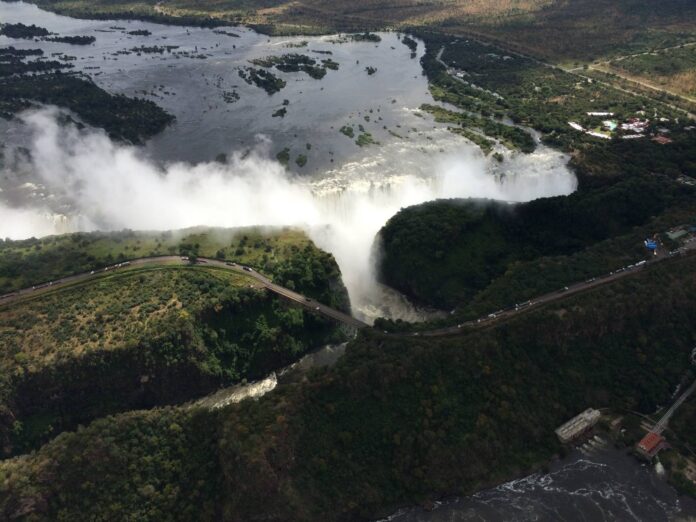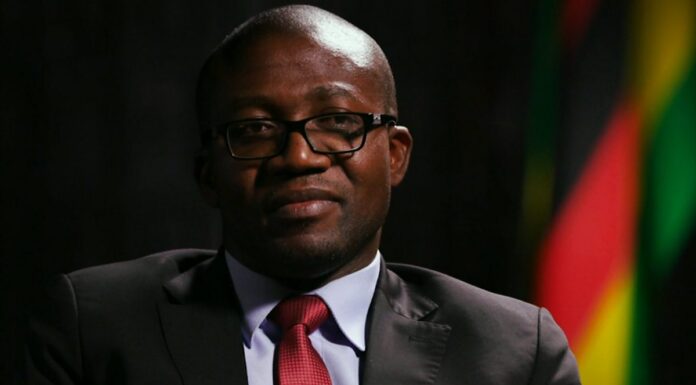Sydney Kawadza
The SADC region is seeking investment water resources development to address insecurities in food and energy while meeting demands from a growing population.
Development of water resources would also ensure environmental protection in the region.
According to the AfDB, there is an estimated financing gap of US$64 billion a year in Africa – that is needed to meet the Sustainable Development Goal No. 6.
The United Nations SDG 6 – Clean Water and Sanitation – states that while substantial progress has been made in increasing access to clean drinking water and sanitation, billions of people—mostly in rural areas—still lack these basic services.
One in three people worldwide do not have access to safe drinking water, two out of five people do not have a basic hand-washing facility with soap and water, and more than 673 million people still practice open defecation.
The UN further states that the COVID-19 pandemic has also demonstrated the critical importance of sanitation, hygiene and adequate access to clean water for preventing and containing diseases.
“According to the World Health Organization, hand washing is one of the most effective actions you can take to reduce the spread of pathogens and prevent infections, including the COVID-19 virus. Yet billions of people still lack safe water sanitation, and funding is inadequate,” the UN states.
Addressing the 9th River Basin Organisations Workshop, SADC executive secretary Mr Elias Magosi said there was need for the region to strengthen cooperation and ensure that joint programmes on shared watercourses are sustained. اون لاين كازينو
The SADC executive secretary’s remarks were delivered by Dr. اربح المال من الألعاب 2024 Patrice Kandolo Kabeya, the Senior Programme Officer-SADC Water Division in the Infrastructure and Services Directorate.
He said the co-operation should be structured in such a way that the shared water courses contribute to poverty eradication and promoting economic growth.
“We call upon international partners and the Private Sectors to work together with RBOs/SWIs to finance mechanisms for trans-boundary water cooperation programmes/projects.
“In the formulation of trans-boundary projects/programme we need to ensure that investments needs do not exceed the resources available to riparian States.
“Note that the RBOs/SWIs need to diversify their funding sources to fit the need of the riparian states.”
The 9th SADC River Basin Organization/Shared Watercourse Institution was held under the theme “Promoting Inclusive and Collaborative Transboundary Water Financing for Sustainable Industrial Development”.
It was convened by the ZAMCOM in collaboration with the SADC Water Division and the Global Water Partnership Southern Africa (GWPSA) while base funding was provided by the USAid Resilient Waters Program and the SADC-GIZ Trans-boundary Water Management in SADC (GIZ-TWM) Programme.
Mr Magosi said the region needed to ensure that it strengthens the enabling environment in which financial cooperation becomes an essential tool for trans-boundary management programmes and projects.
Water, according to the SADC executive secretary, plays a critical role in contributing to building COVID-19 pandemic resilience.
More than 70 percent of the region’s freshwater resources is shared between two or more member states making trans-boundary water management a unique challenge.
“Hunger, malnutrition, gender inequalities, exploitation (and) marginalization are some of the complex challenges that contribute to poverty.
“These need to be addressed through effective management of shared water programmes and projects to realise economic growth and reduce poverty in the SADC Region.”
The Revised SADC Protocol on Shared Watercourses (2000), the Regional Water Policy (2005) and the Regional Water Strategy (2006) are the instruments of cooperation guiding joint development and management of the resources.
“The implementation of the regional water programme has led to the establishment of Shared Watercourse Institutions (SWIs) which play a critical role in the management of shared water resources.
“Over the years – the SWIs have provided platforms for Member States to build a common understanding of the opportunities and challenges in the shared watercourses contributing to promoting sustainable development and contributing to peace and security in the region.
“Despite, the establishment of several SWIs in the region – there is need to support a number of river basin organizations in the region that are yet to be fully established.”
Mr Magosi said as the established SWIs are maturing and evolving, challenges faced by SADC countries with regards to water resources management are increasing.
“More investments are needed to ensure that water resources are developed to address insecurities in food, energy and meet the demands from a growing population whilst ensuring environmental protection,” he said.
The role of RBOs is increasingly coming under the spotlight as to how they can directly support the region in responding to these development challenges.
Mr Magosi said achieving sustainable industrial development in the region required water as an enabler and plays a critical role in driving several priority regional value chains.
“Water is catalytic in supporting the regional value chains towards enhancing industrialisation and food security in the regionally integrating SADC community.
“It plays a critical role in driving agriculture value chains, mineral beneficiation value chains, and tourism value chains.”
He said ensuring the viability and sustainability of regional value chains water was also critical in bolstering productive capacities for inclusive and sustainable industrial development.
“Investments in transboundary water management and development – are therefore critical in sustaining the systems that will drive industrial development.
“In enhancing regional development and promoting an industrial transformation – it is also important that water resources management and water infrastructure development are inclusive – ensuring gender equality and social inclusion; and integrating through promoting nexus approaches that will ensure water security, energy security, pandemic resilience (health), food security and ecosystem integrity.”
The SADC RBOs Workshops are biennial events convened by the SADC Secretariat with the aim of engaging with RBOs, who are seen as a vehicle for strengthening regional integration and cooperation.
The series of workshops further provides a platform for RBOs/SWIs to share experiences and learn from each other to build consensus on SADC’s strategic approach to support the efforts of member states with regards to the establishment, institutional development, and strengthening of RBOs, as well as other trans-boundary water resources development and management mechanisms in the region.
The SADC region has a population of over 340 million people, whose livelihoods are dependent on water resources, which are unevenly distributed over time and space.
Fifteen major river basins within the region are shared by at least two countries with 13 of the basins being located fully within the SADC region.
The Zambezi basin is an African drainage basin, whose main flow is the Zambezi River, being the fourth largest basin on the continent, in addition to being the most important basin in Southern Africa. خطط الدومينو
The basin covers approximately 1,390,000 km², crossing regions with high population density, sometimes the basin spills into areas of low density, such as the Kavango–Zambezi Trans-frontier Conservation Area.
It covers Angola, Botswana, Tanzania, Namibia, Zambia, Zimbabwe, Malawi and Mozambique, being the main supplier of fresh water and electricity to the populations of these regions, mainly from the last five nations.
Two major sub-basins in the Zambezi basin and are interconnected with other major African systems include the Lake Nyassa/Shire River sub-basin, which connects with the Great Rift Valley and the perennial river bifurcation in the Selinda Spillway (or Magwegana river), in the Cuando River sub-basin, which connects the Zambezi Basin to the Kalahari Basin.
The SADC region’s RBOs/SWIs are instrumental as agents of peace-building, conflict-resolution and coordinated effort in the development and management of shared water resources, through ensuring equitable and reasonable utilization of shared waters.











